Identify and engage with local stakeholders
Society Engagement
Public engagement is a cornerstone of WIUT’s mission, deeply embedded in its educational and research activities. Recognized as a premier institution with international standards of teaching and learning, WIUT continues to strengthen its societal contributions through comprehensive policies and procedures. These systems ensure transparent, inclusive, and impactful engagement with stakeholders, driving both local and regional development. To maintain this reputation, WIUT focuses on consistent communication and collaboration, leveraging its expertise for the greater good.
1. Pushing the Boundaries of Knowledge through Innovation, Scholarship, and Research
WIUT emphasizes innovation and research as critical tools for societal transformation. The university follows clear policies and procedures to manage stakeholder relationships effectively, inspired by global best practices.
- WIUT employs systematic approaches to identify and prioritize stakeholders, mapping their relevance and potential impact on university goals.
- Clear processes for drafting Memoranda of Understanding (MoUs) and Memoranda of Agreement (MoAs) define the roles, responsibilities, and expected outcomes of partnerships with local businesses, government entities, and community organizations.
- The University creates opportunities for open dialogue, hosting discussions, forums, and events that facilitate knowledge exchange.
- WIUT ensures research outputs are strategically aligned with societal needs, contributing to economic growth, social well-being, and regional innovation.
2. Granting Access to Society to Leverage University Expertise
WIUT ensures that its academic and research resources are accessible to the broader community, fostering partnerships that address societal challenges.
- The University identifies stakeholders through a structured mapping process, prioritizing partnerships with organizations that align with its mission and strategic goals.
- Local businesses, government agencies, and NGOs gain access to WIUT’s expertise through joint activities such as research collaborations, internship programs, and knowledge-sharing initiatives.
Key initiatives under these procedures include:
- Supporting joint research projects, internships, and knowledge exchange programs.
- Providing community-focused workshops and events to address societal challenges.
- Sharing research findings to drive economic transformations and influence policy development.
3. Fostering an Environment of Diversity and Inclusivity
WIUT integrates diversity and inclusivity into every aspect of its operations, guided by comprehensive policies for stakeholder engagement.
- The University promotes cultural competencies by encouraging interactions among students, faculty, and community members from diverse backgrounds.
- Stakeholder engagement procedures ensure that collaborations embrace equity, fostering partnerships that reflect the diverse makeup of WIUT’s community.
- By actively welcoming individuals from different cultures, WIUT builds an inclusive environment that supports innovation and mutual respect.
These efforts ensure that WIUT not only reflects but actively contributes to the rich cultural and social fabric of its community.
Stakeholder collaboration procedures require that partnerships reflect WIUT’s commitment to equity and embrace inclusivity in all engagements.
4. Nurturing a Socially Responsible Generation
WIUT emphasizes the importance of ethical awareness and social responsibility, both within the university and in its external partnerships.
- The University encourages students and staff to recognize their individual and collective contributions to society, fostering a sense of shared responsibility.
- Stakeholder collaborations are governed by ethical principles, ensuring that partnerships contribute positively to tackling socio-economic challenges.
- WIUT instills a strong sense of social responsibility in its graduates, preparing them to become proactive contributors to societal progress.

